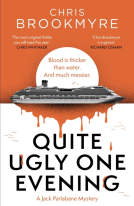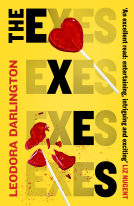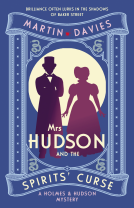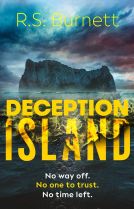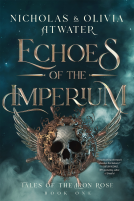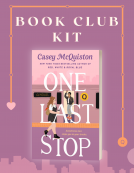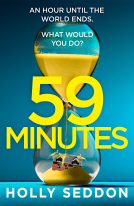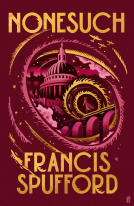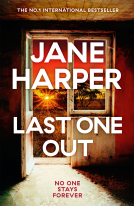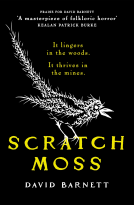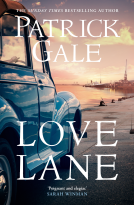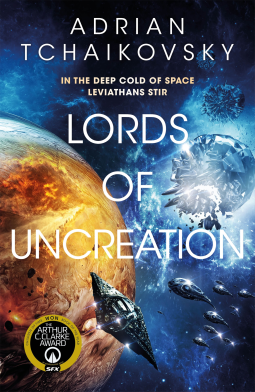
Lords of Uncreation
by Adrian Tchaikovsky
This title was previously available on NetGalley and is now archived.
Send NetGalley books directly to your Kindle or Kindle app
1
To read on a Kindle or Kindle app, please add kindle@netgalley.com as an approved email address to receive files in your Amazon account. Click here for step-by-step instructions.
2
Also find your Kindle email address within your Amazon account, and enter it here.
Pub Date 27 Apr 2023 | Archive Date 26 Apr 2023
Pan Macmillan | Tor
Talking about this book? Use #LordsofUncreation #NetGalley. More hashtag tips!
Description
From Adrian Tchaikovsky, author of Children of Time and winner of the Arthur C. Clarke Award, Lords of Uncreation is the final high-octane instalment in the Final Architecture space opera trilogy.
He's found a way to end their war, but will humanity survive to see it?
Idris Telemmier has uncovered a secret that changes everything – the Architects’ greatest weakness. A shadowy Cartel scrambles to turn his discovery into a weapon against these alien destroyers of worlds. But between them and victory stands self-interest. The galaxy’s great powers would rather pursue their own agendas than stand together against this shared terror.
Human and inhuman interests wrestle to control Idris’ discovery, as the galaxy erupts into a mutually destructive and self-defeating war. The other great obstacle to striking against their alien threat is Idris himself. He knows that the Architects, despite their power, are merely tools of a higher intelligence.
Deep within unspace, where time moves differently, and reality isn’t quite what it seems, their masters are the true threat. Masters who are just becoming aware of humanity’s daring – and taking steps to exterminate this annoyance forever.
Praise for Adrian Tchaikovsky:
‘One of the most interesting and accomplished writers in speculative fiction’ – Christopher Paolini
‘[Adrian] writes incredibly enjoyable sci-fi, full of life and ideas’ – Patrick Ness, author of The Knife of Never Letting Go
‘Brilliant science fiction’ – James McAvoy on Children of Time
‘Full of sparkling, speculative invention’ – Stephen Baxter, author of the Xeelee Sequence on The Doors of Eden
Advance Praise
'Adrian Tchaikovsky: king of the spiders, master world-builder and asker of intriguing questions. His books are packed with thought-provoking ideas (as well as lots of spiders; did I mention the spiders?). One of the most interesting and accomplished writers in speculative fiction' - Christopher Paolini
'[Adrian Tchaikovsky] writes incredibly enjoyable sci-fi, full of life and ideas' - Patrick Ness
'A thoughtful, sweeping space adventure' - SFX Magazine on Shards of Earth
Available Editions
| EDITION | Other Format |
| ISBN | 9781529051988 |
| PRICE | £22.00 (GBP) |
| PAGES | 624 |
Available on NetGalley
Average rating from 34 members
Featured Reviews
First of all, if you haven't read the first two books go read them NOW!
This series has broken me! I have been too invested in these books. I am suffering from a book hangover. I can't stop thinking about Idris and the entire Vulture God space crew.
Mr Tchaikovsky created the perfect space saga for all readers out there. Whether you into hard core sci-fi or not, you will enjoy these books. It has the perfect blend or magnitude, space, awe, likeable characters and space action that a good space trilogy needs.
I mean the action sequences were literally out of this world! And the dialogues are amazing. You really know the characters by the end of it and you can't let them go! I love Idris and Ollie and Solace and Kris and Kit and all of them really. It felt like I was a part of their crew
Lords of Uncreation finishes the series with a beautiful, justifiable ending even if it does shatter your heart in a million pieces. This book flips expectations I had from some of the characters from the first two books. And it gave me a lot of unsuspected twists and turns. It gave me a beautiful ending that I had yearned for since book 1.
I still have so many questions, it's left me wanting for more. I want there to be a 4th book or maybe just a chapter! Please!
 Leigh W, Reviewer
Leigh W, Reviewer
With Lords of Uncreation, Tchaikovsky reaches the conclusion of his sprawling space opera, as Idris, Solace and the rest of the Vulture God crew are once more swept up in the fight against the Architects and an unexpected new foe. The action is unrelenting pretty much from the start, and more than makes up for the slight dip in quality of the trilogy’s middle child. A fantastic conclusion with all loose ends tied up neatly, but you’ll need to read the full trilogy for it to properly make sense.
I received an advance reading copy of this book in exchange for an honest review.
 Dan P, Bookseller
Dan P, Bookseller
Look, this is the third book in the series. You’re not reading this review if you’re curious to know what it’s about, you want to know if Tchaikovsky can stick the landing. And, boy, have I got good news for you.
Lords Of Uncreation triumphantly crowns one of the best space opera series of recent years. There are exciting action sequences, both cosmic and hand to hand (the set piece almost exactly halfway through the book is spectacular). The implacable, unknowable, hostile aliens from another dimension aren’t a disappointing damp squib (hello, The Expanse!). The characters we’ve come to know through the last two books all get their fair share of screen time, and their storylines mostly tie up satisfactorily. It’s a great conclusion to a great series, and some of the most fun I’ve had with SF in a good while.
Thank you Netgalley and Publisher for this advanced copy.
Lord of Uncreation was a great finale for the Architect series. Idris and Solace journey's came to the end. Also the action scene was written perfectly.
 Sarah C, Reviewer
Sarah C, Reviewer
Thank you to NetGalley for letting me read this. It's a fantastic read.
This is the final part of a trilogy, and it pulls everything together beautifully. There's a lot going on here. At one point, which I assumed was the climactic scene, I realised I was just over half way through. Having said that, I was torn between tearing through it and deliberately slowing myself down. I wanted to stay in this world. I've been through a lot with these characters, and it was hard saying goodbye to them.
Nobody writes "otherness" quite like Tchaikovsky. His aliens are definitely alien, not just humans in fancy dress. He writes politics well, and this is written on an epic scale. Definitely a 5 star read.
An amazing ending to a fantastic series! I was hooked from the first pages of book 1, Shards of the Earth - the characters immediately feel like old friends, and you are pulled into the story from the start. Having read, and loved, the first two books, I hoped that this one wouldn't disappoint.
And it didn't! Everything is wrapped up with tense, emotional, non-stop action and the story comes to a satisfying conclusion. And even though it was a long book, I wish it had been longer! Highly recommend.
 Ciaran S, Reviewer
Ciaran S, Reviewer
I’ve read the whole trilogy over the last few weeks and so am completely immersed in the universe that Tchaikovsky has created here. As a series it perhaps has less philosophical ideas than the Children of Time series, but it has immense scope and effortlessly rolls in some big questions about what it means to be a human (or indeed another species), the responsibilities for and of refugees, genetic manipulation etc.
I say effortlessly as it wraps it all up in a huge space opera of politics, fighting and travelling through the ‘unreal’. The characters are fully formed, their continued development is convincing, and the end state of each of them by the novel’s close is both narratively coherent and doesn’t feel ‘forced’ for a neat conclusion.
Brilliant end chapter of an engrossing trilogy.
Bonus points for including a “story so far” section at the start of the book - not unhelpful when there’s so much going on.
I've had the ARC of this from Netgalley for a while, but kept not getting around to it for one reason or another, and while half of that was having only just read other Tchaikovsky ARCs, because have I ever mentioned that he has a ridiculous rate of productivity, I think part of it was worry. After all, it's not that long since he released another third volume in a science fiction series where I loved the first two – but Children Of Memory was a dreary disappointment, so would the same go for Lords Of Uncreation? Well, the short answer, thank heavens, is an emphatic no, though it certainly has some of the same bleakness; as the book opens, humanity is working together against the monstrous, planet-destroying Architects, and it finally seems like they might actually be getting somewhere with fighting back. Except, of course, that humans are humans, so before long significant elements have gone from bridling to outright insurrection, because no situation is so dire that some dickheads won't see it as primarily a chance to get one over on the other guy and cement the primacy they're so certain they deserve. The similarities to our own age of bickering while the world burns being entirely non-coincidental, of course, especially when it comes to the most loathsome of the POV characters, the old money bastard holding his nose as he finds common cause with boot-boys in order to further his vision of a humanity purged of the undesirable bits. And that human focus is one of the things which sets this trilogy apart from the Children books. There, large chunks were told from the perspective of spiders, octopuses, or things more alien still. Here, every character who gets their own chapters is human – admittedly with the proviso that this is a future where that term covers an even more diverse species than now. There are aliens, ones who are fully rounded characters, but from the wry, skittering crewmate Kit through the enigmatic Ash to the awe-inspiring Aklu, we never get inside any of their heads, any more than the humans who encounter them can, and even as one of the leads, Idris, is doing his utmost to use his remarkable abilities and the ancient technology located in the previous volume to make contact with something far, far stranger. At every level, though, the difficulty of translation, of fully getting a concept across when underlying frameworks differ, remains a constant concern. To the extent that I found myself wondering, despite this being a long-standing philosophical quandary, whether a confusing conversation with a fan who'd read one of Tchaikovsky's books in translation might have been one ingredient in the genesis of this series.
And yet despite the book's structure imposing that barrier, the attempt to cross it is key. Idris sympathises with the Architects because he knows that, terrifying as they are to humanity and other species on an approximately human scale, and for all the destruction they wreak, they are being used as a tool by something else, just as people want to use him and his Intermediary powers as a tool. Meanwhile, with clear nods both to Pratchett's definition of evil and to examples of it in our own benighted era, there's a running theme of how those who have been in the habit of seeing other people as property will often retain that mindset no matter how much laws or what's acceptable to say in public have changed in the meantime. But there's also an awareness of how supposed sworn enemies can often find common ground in their very hatred of each other, to the disadvantage of anyone who just wanted to get on with their life, and of how purity tests can lock in groupthink. It's grim, chilling stuff – though unlike Children Of Memory, never merely miserable, let alone dull; more than once I'd click out of the Kindle app because I needed a break, only to go right back in because I needed to find out what happened next. By the end, I'd laughed and cried, though not quite as much as I'd done sharp intakes of breath; when the character who has seemed to know most about what's going on says "It is time to end this", and there was still more than a third of a fairly hefty book to go, my first assumption was that some fake-out or subsidiary battle was coming, but no, it's just a very big endgame, in all senses; exhausting, but not in a bad way, at least for the reader. There are twists and turns, of course there are, but it's noticeable how almost all of the big revelations here creep up on you, as on the characters, rather than being 'ta-da!' moments. Similarly, the little nods and steals from elsewhere feel earned and bedded in, whether that be the Brexit/MAGA overtones of the villains (which feel so much less crowbarred here than in Doors Of Eden) or the heartbreaking new riff on that old mainstay of SF grief, the "tears in rain" speech. It's not flawless: a friend recently read the second volume, and after his note about a tendency to repetition I did register a couple of instances here, most obviously that at least three ruddy great lethal alien things, from at least two totally different biospheres, get compared to big enthusiastic dogs (and one other creature to an incontinent dog). That's the littlest bit of grit in the machine, though; more often we get arresting images such as the robotic limbs "all spread out like a cheering crowd at a praying mantis convention", or the wry/despairing and deeply relatable line "Attempts at damage diagnostics are being hampered by damage to the damage diagnostic systems." And at the heart of it all, the people, the ill-assorted, damaged oddballs who are humanity's only hope, not least the one who is almost certainly the galaxy's best bet, despite the fact that "Outside unspace, Idris sometimes seemed to be the most useless man Havaer had ever met." Set against them, various flavours of monster high on the lethal celebration of purity, efficiency, supposed big-picture thinking which always turns out so very pinched and mean: "It was something he'd seen plenty of times in his job, the way that kind of mindset worked, spiralling inwards into itself. Until at some point, the necessity of doing bad things for a good cause became, by the inexorable ratchet of cognitive dissonance, the insistence that doing things the bad way was a virtue in itself. Because otherwise how could one justify all the bad things already done?"
 Reviewer 765155
Reviewer 765155
With this third and final book in the Final Architecture trilogy, Adrian Tchaikovsky answers so many of the questions posed in the first two books, rising to a climatic sequence full of everything you could ever want from a Space Opera. Potential spoilers for the first two books to come
Being the third book in the trilogy, I’m not sure if I want to get into too much plot detail, considering you probably know what to expect if you’ve already read the first two. Suffice to say the book opens with Idris et al working for the Cartel, a loosely affiliated group of scientists, spooks and factions attempting to use the Eye (a modified Originator site that Idris wrenched into space in the last book) to locate and potentially destroy the Architects. Idris knows however that the Architects are only slaves to the real threat, and is determined to find their masters and convince them to stop their genocidal actions. Of course, the new status quo gets shaken up pretty quickly, and this is the source of my only complaint – I found the events of some of the first half of the book to be somewhat of a distraction from the true story, even if it did build on themes and set up some truly great developments.
A good chunk of our protagonists get some solid development in this book, and the dialogue is truly excellent. Kittering went from an amusing side character to one of my favourites, practically stealing the show whenever he gets page time with some cutting lines. I found Olli’s paranoia frustrating this time, but I love where her storyline takes her. Havaer and Kris are excellent as always, and Solace gets some decent development too. And Idris is still Idris, in all his broken glory.
The pacing as usual is top notch – Tchaikovsky doesn’t let the story settle for too long before ramping things up again, and this time the entire last third of the book just builds and builds, as the peril and stakes get higher and higher. It’s something I admire about some action heavy books, how they can create a climax that lasts so long but never gets stale. And the ending really lands, with an epilogue that brought a couple of tears to my eyes.
As I said before, all the questions that I had about the Architects, the Originators and the enemy behind the Architects are answered. I don’t think theorycrafters will necessarily be surprised by most of them, but for me the answers are never quite as important as how those answers resonate with the characters journeys, and in this case it all fits together immensely well.
Some people say journey before destination, but I love a good ending – it makes you reflect better on the series as a whole. In this case, Lords of Uncreation is a near perfect ending to the Final Architecture trilogy, let down only a little by the first half.
Rating: 9.5/10
Readers who liked this book also liked:
We Are Bookish
Historical Fiction, Literary Fiction, Multicultural Interest
Colm Tóibín
General Fiction (Adult), Literary Fiction, Novellas & Short Stories
